Milwaukee Officials Blocked Windows, Preventing Observers From Seeing Them Process Ballots
While votes streamed in during last week’s Wisconsin Supreme Court race, workers in Milwaukee handled ballots in secret back rooms forbidden to observers, according to multiple sources. One of these rooms also allegedly stored vast numbers of blank ballots.
Wisconsin state Rep. Dave Maxey, a Republican, told The Federalist that Milwaukee elections director Paulina Gutierrez blocked observers from seeing multiple rooms in the city’s Central Count, where workers were processing ballots on Election Day. According to Maxey, one of these was the “secure ballot room,” which housed pre-printed blank ballots.
“The reason I wanted to get into those rooms is, ‘Why are you covering the windows? Why did you have mail bins stacked in front of the glass and obscuring people’s view?’” Maxey said. “If there’s nothing to see, let’s be as transparent as a window.”
In Wisconsin’s Supreme Court race on April 1, Republican-backed Brad Schimmel lost to Democrat-backed Susan Crawford 55 percent to 45 percent. The race gave leftists control over the state’s highest court for years. Gutierrez had allegedly been allowing workers to handle ballots in rooms inaccessible to observers for weeks before the election, as The Federalist previously reported, and planned to continue using these secret rooms on Election Day.
Blocking Observers
A wall of mail bins obscured the secure ballot room’s main window, multiple sources who wished to remain anonymous told The Federalist. They also said officials had altered the windows to several rooms where observers were not allowed, giving them a “frosted” texture so others could not see in. The windows to some of the rooms had previously been papered over. Sources provided images of the secret rooms and obscured windows.
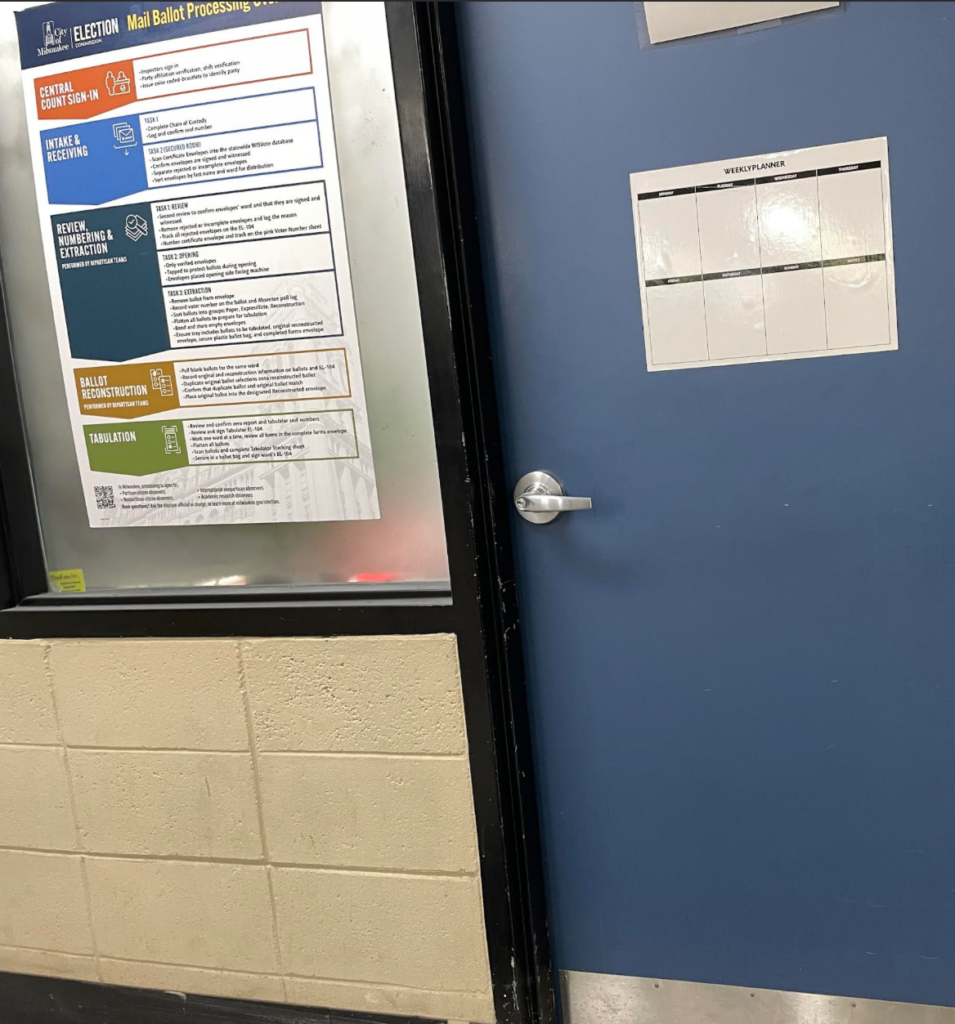
Frosted window to one of the secret rooms
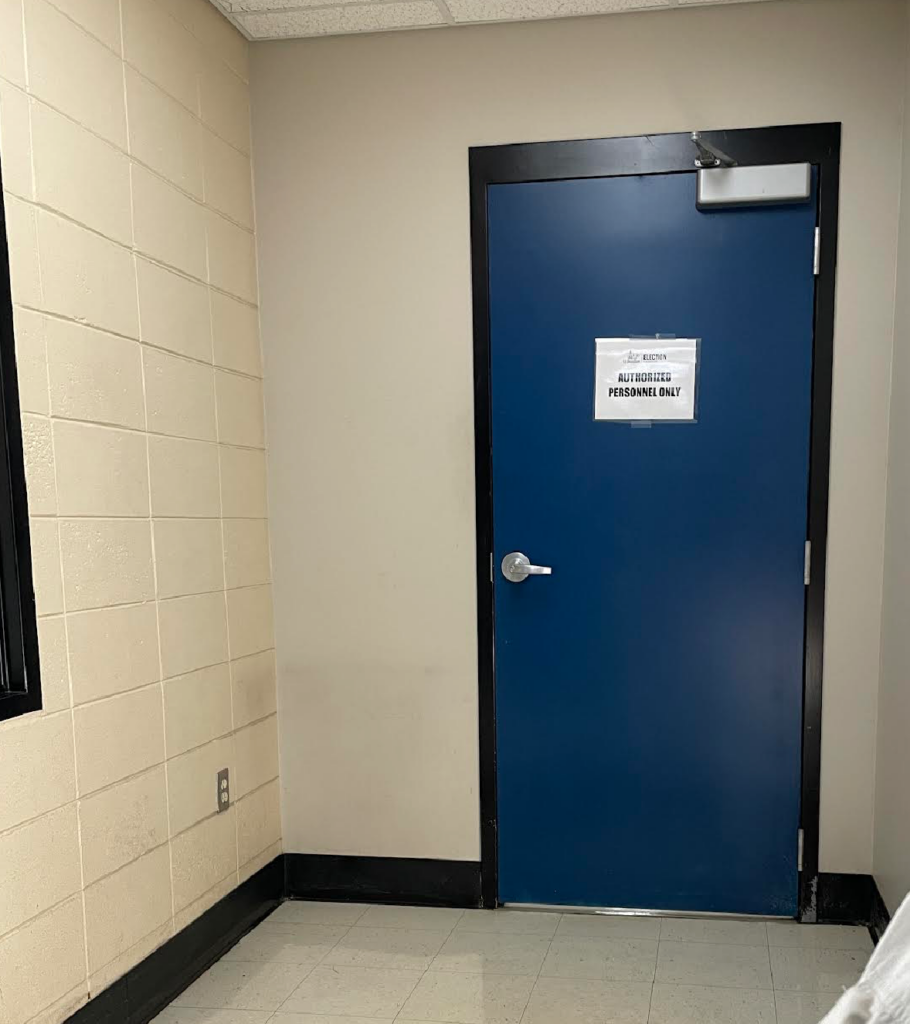
Another forbidden area
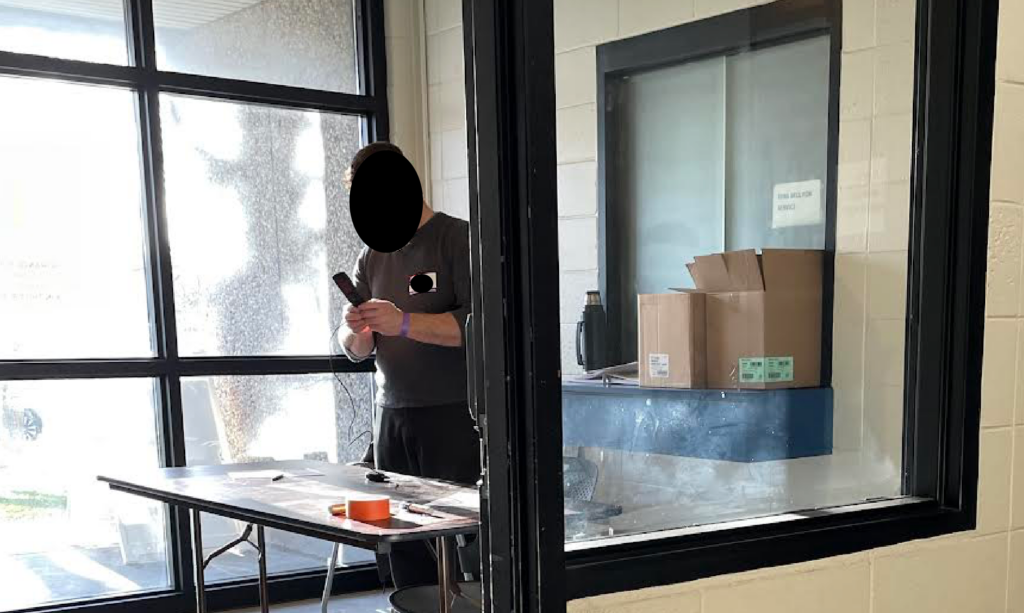
Worker near another frosted window
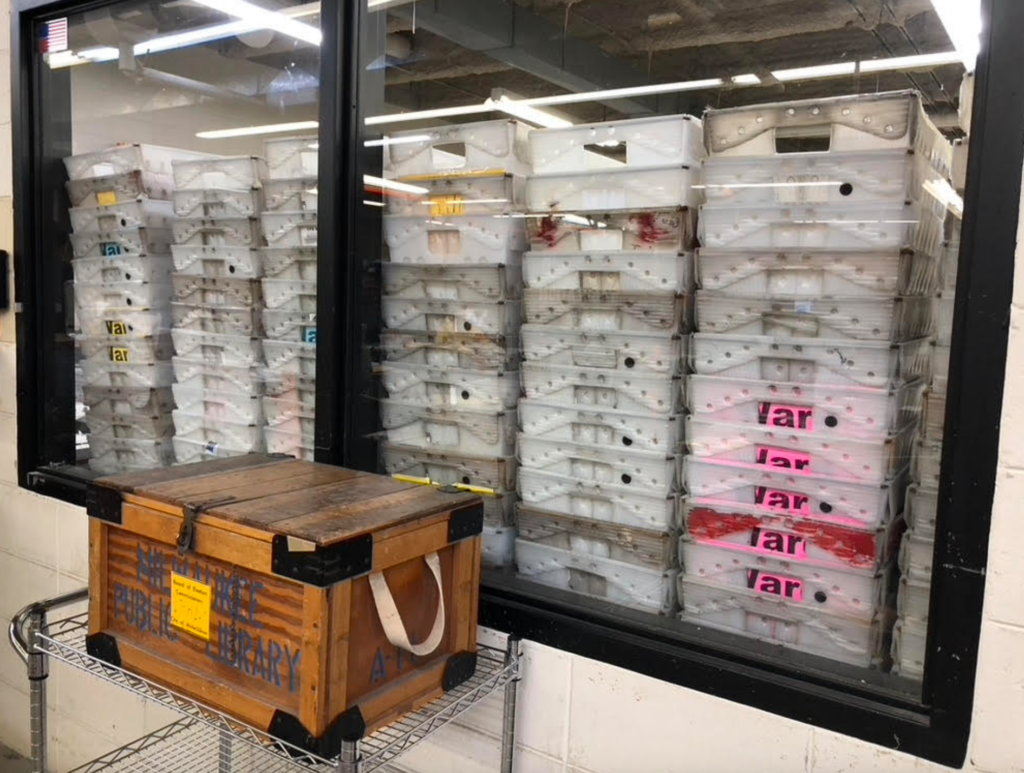
Mail crates blocking main window to secure ballot room
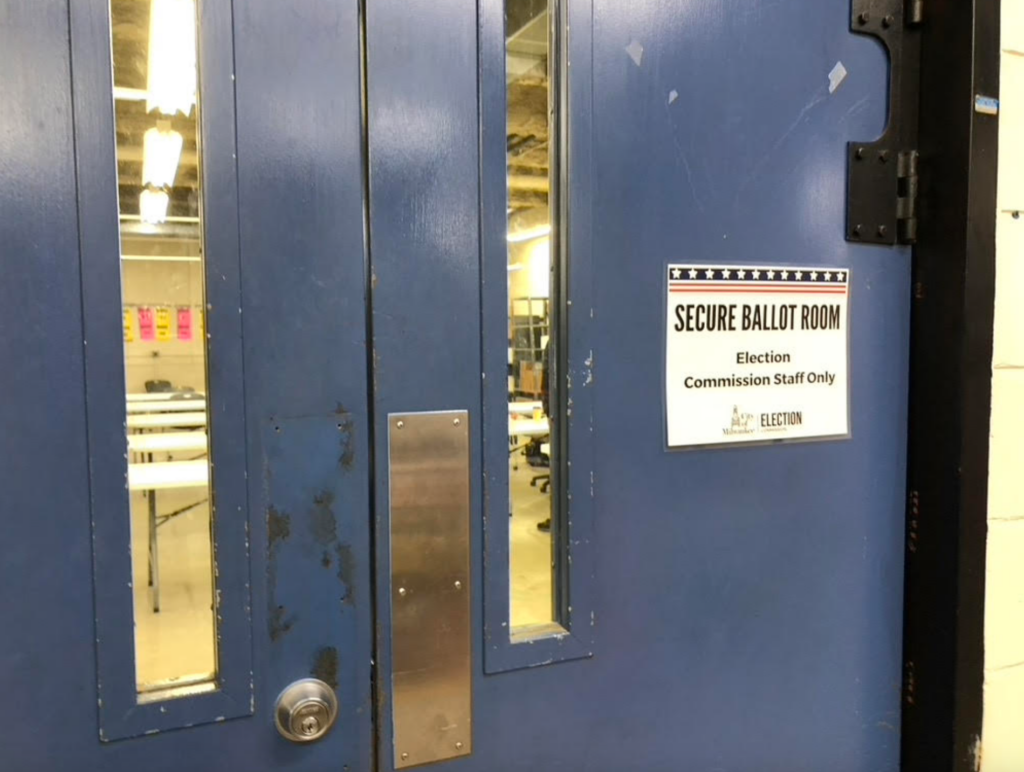
Narrow windows in secure ballot room doors

Frosted window near secure ballot room
The non-observable areas are allegedly used to sort ballots by wards (the equivalent of election precincts) and alphabetize them before sending them to the general observable area for further processing, according to Maxey.
Jeff Fleming, communications director for Milwaukee Mayor Cavalier Johnson, told The Federalist that “[t]here were a couple of rooms that had limited access, the secure ballot room in addition to private offices.”
Maxey is chairman of the state assembly’s Committee on Campaigns and Elections. While Gutierrez banned observers from these areas, Maxey said he briefly gained access to the secure ballot room and one of the back rooms — though Gutierrez was hesitant.
“When I asked to go back there, I was kind of scolded,” Maxey said. “She was hesitant because she had let someone else go back there earlier.”
When Gutierrez briefly allowed him in the secure ballot room, Maxey said he saw shelves full of blank ballots.
“They had blank ballots pre-printed for many wards, I think every ward. What I saw was shelves …” Maxey said. “On those were non-completed ballots by ward. … As somebody would request an absentee ballot, that’s where they were grabbing them from and mailing them out.”
Maxey said that while he was in the room, he didn’t see anything suspicious happening. As ballots were received, workers brought them into the room, divided them by ward, and then alphabetized them. Still, he called for more transparency.
“If the empty ballots or blank ballots and possible compromise of those is what makes that a non-observable area, then alphabetize out in the open,” Maxey said. “There was room to do that.”
Maxey also accessed one of the secret rooms, which Gutierrez was apparently using as an office. He said he did not, however, see inside the other back room, which adjoined the Central Count garage.
“The secure ballot room is where returned absentee ballots are sorted and processed on election day as well as in the days and weeks before they are sent to the floor of the Central Count location where they are actually canvassed,” Fleming said. “[O]ur Board of Election Commissioners, including both Republican and Democratic representatives, are allowed to enter those areas and observe as well as election officials to complete their election duties. … [T]he secure ballot room is used to store election materials. The room is locked and under 24 hour surveillance.”
Fleming cited Wisconsin §6.88 and §7.53 (2m), saying the city clerk’s office “must undertake” activities like sorting before Election day, whether it uses “a board of absentee ballot canvassers … or whether its absentee ballots are canvassed at a polling place at the ward where the elector resides on election day.” He said the former statute does not require “this sorting and processing be observable to the public. …”
“[R]equiring observers access to government offices for weeks prior to an election would unreasonably disrupt election officials in carrying out their required duties,” Fleming said.
Wisconsin §7.41(2), however, dictates that “[t]he observation areas shall be so positioned to permit any election observer to readily observe all public aspects of the voting process.” A source previously told The Federalist the statute is broad enough that it allows administrators to “remove” and “restrict” observers.
Gutierrez was deputy to former Milwaukee Election Commission Executive Director Claire Woodall-Vogg, as The Federalist’s Matt Kittle previously reported. Woodall-Vogg worked with the leftist Center for Tech and Civic Life (which funneled millions in “Zuckbucks” from Meta CEO Mark Zuckerberg to election offices nationwide) to install a Democrat activist in the city’s 2020 election process.
Milwaukee officials ousted Woodall-Vogg from office in spring 2024, as Kittle reported at the time. When Gutierrez rose to take her position, according to VoteBeat, election workers were uneasy about her lack of experience working federal elections before 2024. And Wisconsin conservatives feared Gutierrez could be even more hostile to election integrity than her predecessor. As The Federalist previously reported, her background includes work as a “community organizer, mediator, and restorative justice and gun policy specialist.” Ahead of the state Supreme Court election, she claimed “police powers” to remove observers.
Ballot Shortages
Seven Milwaukee voting sites ran out of ballots on election night, so officials had to send out additional ballots and ExpressVote machines, according to WISN. The machines, typically used for early voting, allow voters to cast their votes on an electronic screen and then print ballots to be “fed through counters,” according to WisPolitics. The shortages contributed to long lines at voting sites, leading officials to announce that those in line by 8 p.m. could still vote.
“I don’t know how you don’t prepare and have enough ballots in every single polling location in a race where over $90 million was spent to turn out the vote,” Maxey said. “How do you underestimate the number of ballots you need?”
Maxey said he saw Gutierrez pushing a “cart with paper on it.” “She told me what it was, and that they had higher turnout than they had expected, and they were delivering blank ballot paper to print at several locations,” he said.
The Federalist asked Fleming “[w]hen voting locations ran out of ballots, how did officials resupply them, and with what,” listing the examples of “machines, ballot paper, pre-printed ballots.” Fleming replied that “[t]he city utilized all of the options you noted. …”
A source who was at Central Count, who wished to remain unnamed, told The Federalist the secure ballot room was only visible through two narrow windows in the doors. After the polls closed, the source allegedly saw Gutierrez reach onto the shelves, pull down what looked like a stack of ballots, and put them in a blue bag. Sources also shared photos that appear to show the elections director carrying blue bags to the loading dock.

Gutierrez with a blue bag in secure ballot room
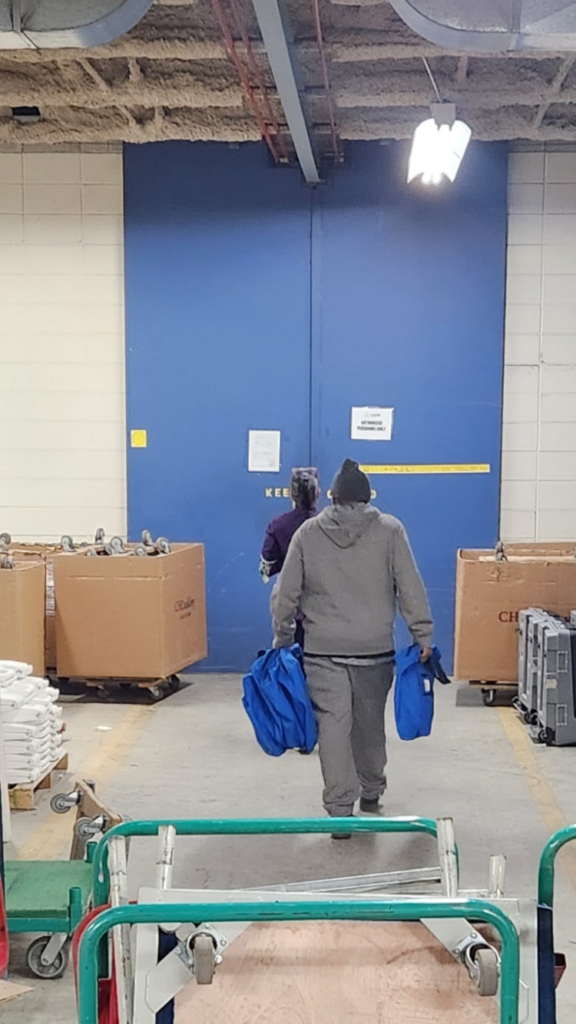
Gutierrez and a worker carry blue bags through common area to loading dock
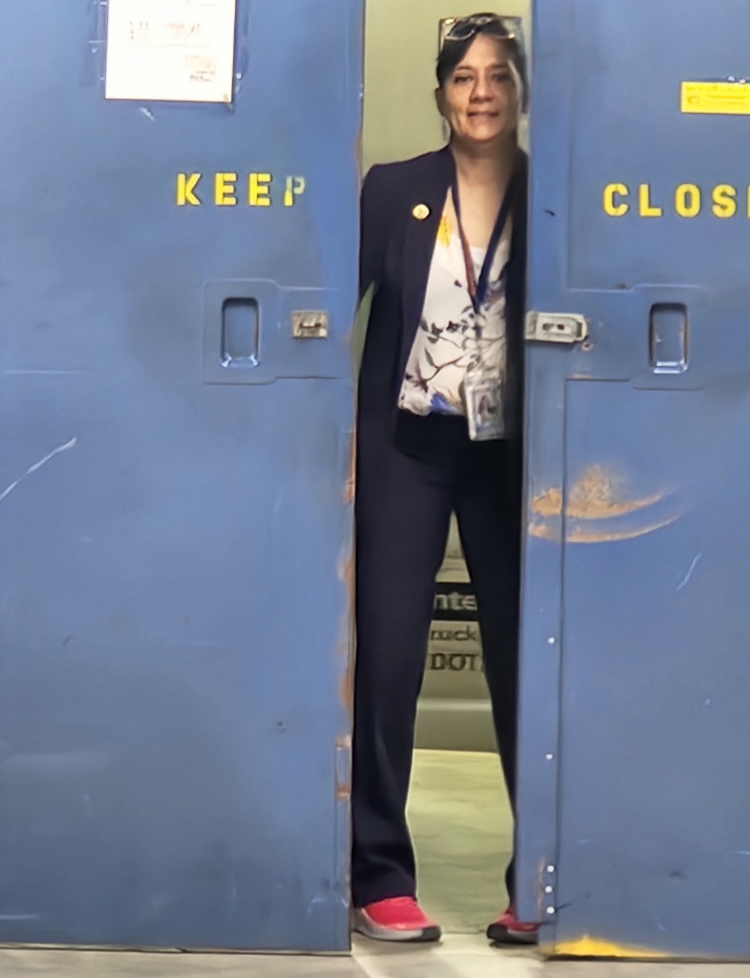
Gutierrez behind loading dock doors
Maxey called for greater transparency so people can trust the election results. “If you didn’t stack stuff in front of the glass, and you didn’t frost other rooms’ glass, we’d see there’s nothing to see there,” he said. “Those are the kinds of things that make anybody question the integrity of the election.”
Logan Washburn is a staff writer covering election integrity. He is a spring 2025 fellow of The College Fix. He graduated from Hillsdale College, served as Christopher Rufo’s editorial assistant, and has bylines in The Wall Street Journal, The Tennessean, and The Daily Caller. Logan is from Central Oregon but now lives in rural Michigan.





Comments are closed.